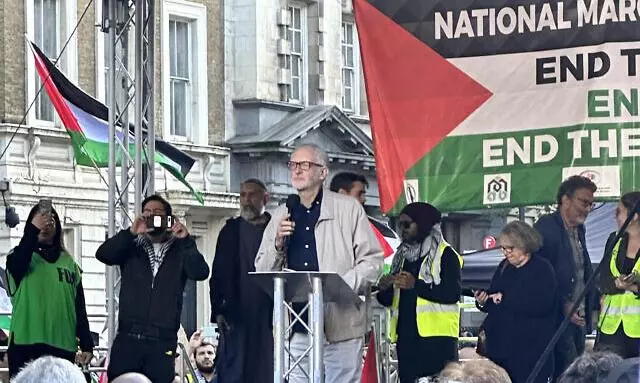
UK plans to punish Muslim, pro-Palestinian groups as extremist with proposed new law
text_fieldsUK’s proposed extremism law may deem Muslim, pro-Palestinian groups extremist organizations
London: The UK government's proposed expansion of extremism laws could label several Muslim and pro-Palestinian groups, such as the Muslim Council of Britain, Palestine Action, and Muslim Engagement and Development, as extremist organizations, according to The Observer.
The proposed expansion of the definition of extremism is said to punish individuals and organizations under the new law, potentially impacting legitimate criticism of the state amid the pro-Palestinian protests across Britain. Many view this as an attempt to crack down on freedom of speech.
The proposed definition of extremism, outlined in sensitive government documents, broadly characterizes it as the promotion or advancement of any ideology that aims to overturn or undermine the UK's system of parliamentary democracy, institutions, and values.
The definition also includes sustained support for or continued association with organizations or individuals exhibiting extremist behaviours. Critics argue that the definition is too broad and could stifle legitimate criticism of the state, potentially infringing on freedom of speech.
The news comes amid ongoing mass pro-Palestinian protests in the UK, which have drawn hundreds of thousands of demonstrators to the streets of London and other major cities for the past four weeks. Home Secretary Suella Braverman's controversial characterization of these protests as "hate marches" has further fuelled the debate.
The proposed measures are reportedly being finalized by civil servants working for Levelling Up, Housing and Communities Minister Michael Gove, following a review of non-violent extremism launched earlier this year.
The documents, marked "official — sensitive," suggest that the new definition aims to set a clear threshold for identifying extremism, but critics argue that it could have a chilling effect on free speech.
Human rights groups, including Liberty and Amnesty International, have strongly condemned the proposals. Liberty's interim director, Akiko Hart, called them "reckless and cynical," expressing concerns that the broadened definition could discourage individuals and groups from legitimately exercising their right to free speech.
Martin Bright, editor-at-large of the Index on Censorship, labelled the move an "unwarranted attack on freedom of expression," warning that it could potentially criminalize dissenting voices.
Ilyas Nagdee, Amnesty International's racial justice director for the UK, argued that the proposed definition could hinder people from organizing and mobilizing, going further than the already broad application of the term in counter-terrorism policies.
The government, however, maintains that there is no place for extremism and asserts that the approach to tackling extremism is under constant review to meet the evolving challenges it poses.
The lack of public consultation on the proposed definition has raised concerns about transparency and accountability in shaping legislation that could have significant implications for free speech in the country.






















